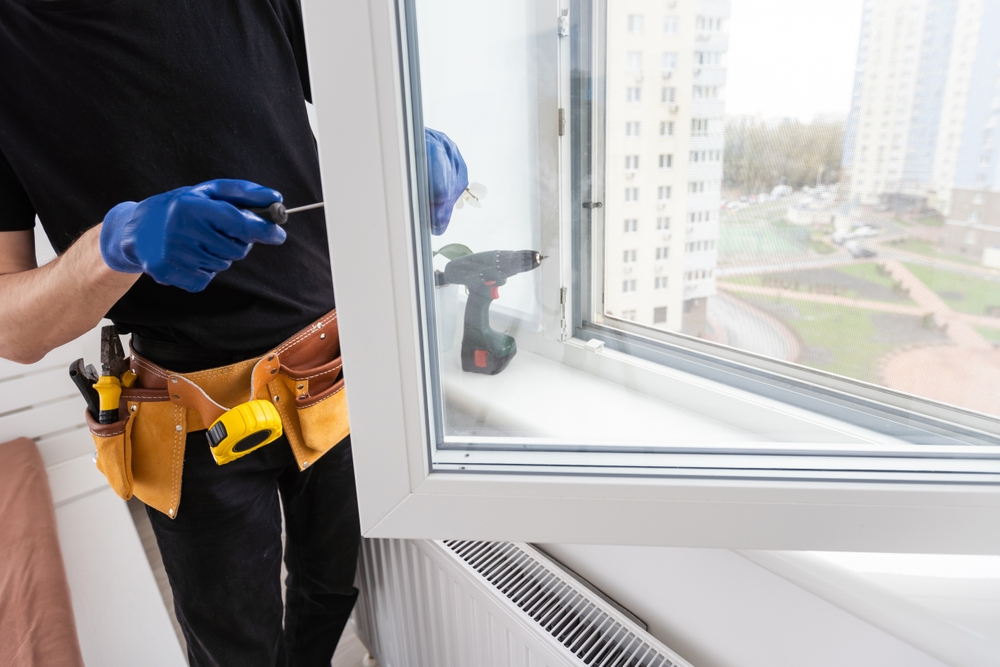Preventative Glass Maintenance Tips to Extend Lifespan

Glass surfaces add elegance and functionality to homes and businesses, from windows and doors to tabletops and mirrors. However, maintaining these surfaces can be challenging. Regular glass maintenance not only enhances the look of glass surfaces but also extends their lifespan, preventing costly repairs or replacements. Here, we’ll cover some effective preventative glass maintenance tips to help you keep your glass looking pristine for years.
Why Preventative Glass Maintenance Matters
Glass surfaces are exposed to various factors like dust, dirt, weather changes, and chemical exposure, all of which can lead to wear and tear over time. Without regular maintenance, glass can scratch, chip, or even develop cracks. By following some simple glass maintenance tips, you can preserve the clarity and quality of your glass surfaces, keeping them durable and beautiful for longer.
Benefits of Maintaining Glass Surfaces
- Enhanced Appearance: Regular maintenance keeps glass looking clean and free from grime.
- Extended Lifespan: Preventative care can help glass resist cracks, chips, and other damage.
- Cost Savings: Preventative maintenance can save you from the expense of repairs and replacements.
- Improved Safety: Maintained glass is less likely to develop structural issues that could lead to hazards.
Essential Glass Maintenance Tips
If you’re wondering how to maintain glass surfaces, the following tips provide a comprehensive approach, from cleaning and polishing to protecting glass against environmental factors.
Clean Glass Regularly
The most fundamental step in glass maintenance is regular cleaning. Dirt and debris accumulate on glass over time, dulling its appearance. A regular cleaning routine can prevent grime buildup and keep your glass looking transparent and radiant.
How to Clean Glass Properly
- Use a Soft Cloth: Microfiber cloths are excellent for cleaning glass without scratching it.
- Choose the Right Cleaner: Avoid harsh chemicals like ammonia or bleach, which can erode certain glass finishes. Opt for a mild, ammonia-free glass cleaner or a mixture of water and vinegar.
- Avoid Abrasive Materials: Paper towels, while commonly used, can scratch glass. Stick to lint-free, non-abrasive cloths.
- Clean in Circular Motions: Circular motions help lift dirt effectively and avoid streaks.
For outdoor glass, especially windows, consider using a hose to rinse off dust and dirt before cleaning to prevent scratching.
Prevent Water Stains
Water stains are one of the most common issues affecting glass surfaces, especially in bathrooms or outdoor areas. When water evaporates, it leaves behind mineral deposits that form unattractive stains on glass. Preventing these stains can keep your glass surfaces clearer for longer.
Tips to Prevent and Remove Water Stains
- Wipe Down After Use: For shower glass, wiping down with a squeegee or cloth after each use can prevent water stains from forming.
- Install a Water Softener: Hard water has higher mineral content, which can lead to more water stains. A water softener can help reduce these minerals, preserving your glass.
- Use Water Repellent Products: Special glass coatings or water-repellent products create a protective layer, making it easier to clean and preventing water spots from forming.
If you notice existing stains, a solution of vinegar and water can help to remove them. Apply the solution, let it sit for a few minutes, and then wipe it away with a soft cloth.
Avoid Direct Sunlight Exposure
While glass is designed to be durable, constant exposure to sunlight can cause some glass surfaces to weaken or discolor over time. UV rays can also lead to fading of any items placed near or on the glass, such as framed photos or display items.
Tips to Minimize Sunlight Damage
- Install Window Films: UV-blocking window films can help reduce sunlight exposure and provide an extra layer of protection.
- Use Curtains or Blinds: Covering windows during peak sunlight hours can also protect both glass and nearby objects.
- Consider UV-Protected Glass: If you’re installing new windows, UV-protected or laminated glass can offer a longer-lasting solution.
Handle Glass Carefully
Handling and moving glass requires caution, as improper handling can lead to chips or cracks. Whether you’re cleaning, transporting, or simply rearranging items on a glass surface, careful handling is key to preventing accidental damage.
How to Safely Handle Glass
- Use Both Hands: Always support glass with both hands to prevent bending or tipping.
- Avoid Sharp Objects: Keep sharp or heavy objects away from glass surfaces to avoid scratches or cracks.
- Place Mats or Coasters: For glass tabletops, using mats or coasters under hot or heavy items prevents direct contact with the glass, reducing the risk of scratches and other damage.
Protect Glass from Extreme Temperatures
Sudden temperature changes can weaken or crack glass, especially if it’s untreated or thin. In climates where temperature varies significantly, glass surfaces may be particularly susceptible to thermal stress.
Tips to Reduce Temperature-Related Damage
- Avoid Placing Hot Items on Glass: Direct heat can weaken glass. Use trivets for hot pots and avoid placing hot tools on glass surfaces.
- Choose Tempered Glass: For areas prone to temperature changes, tempered glass is more resistant to thermal stress.
- Install Weatherproofing: For outdoor glass, such as windows and doors, weatherproofing measures can reduce exposure to temperature fluctuations.
Repair Minor Damage Promptly
Minor cracks or chips may seem harmless initially, but they can worsen over time, leading to larger, more expensive repairs. Addressing small issues promptly can prevent them from developing into major problems.
How to Repair Small Chips and Cracks
- Use Glass Repair Kits: For minor scratches or chips, glass repair kits can fill and hide imperfections.
- Seek Professional Help: For more significant damage, consult a glass professional. Attempting DIY repairs on major cracks can worsen the issue.
Apply Protective Coatings
Protective coatings can help safeguard glass from scratches, stains, and other types of damage. These coatings create a barrier between the glass and external elements, extending its lifespan.
Types of Glass Protective Coatings
- Anti-Scratch Coatings: Ideal for high-traffic areas or surfaces frequently in contact with objects, such as tabletops.
- Anti-Stain Coatings: These are particularly useful for shower glass, mirrors, and windows.
- UV-Protective Coatings: For outdoor windows, UV-protective coatings help prevent fading and sun damage.
These coatings should be applied by professionals, especially if you’re dealing with large surfaces or want a high-quality, long-lasting application.
Glass Maintenance Tips for Specific Areas
Window Maintenance
Windows are exposed to the elements, making them prone to dirt, water spots, and damage from sunlight. Regular cleaning, as well as occasional inspections for cracks or other issues, is essential.
Shower Glass Maintenance
Shower glass is especially susceptible to water stains and soap scum. Wiping down after each use and using water-repellent treatments can make a big difference in keeping shower glass clear.
Glass Tabletop Maintenance
Glass tabletops endure regular contact with dishes, decor, and other items that can cause scratches. Using coasters, mats, or table runners can minimize direct contact and preserve the glass.
Mirror Maintenance
Mirrors can develop spots or discoloration over time if not properly maintained. Clean mirrors with a gentle glass cleaner and avoid harsh chemicals, as they can degrade the mirror’s reflective surface.
How to Maintain Glass Surfaces for Long-Term Durability
Maintaining glass surfaces over the long term requires a combination of regular cleaning, protection from environmental factors, and immediate repair of any small damage. Preventative glass maintenance tips, such as cleaning regularly, avoiding abrasives, and using protective coatings, can significantly extend the life of your glass.
Summary of Key Tips
- Regular Cleaning with gentle, non-abrasive materials.
- Prevent Water Stains by wiping down surfaces and using water repellents.
- Limit Sun Exposure by using window films or blinds.
- Handle Carefully and avoid placing sharp objects on glass.
- Avoid Extreme Temperatures and direct heat contact.
- Repair Minor Damage promptly to prevent larger issues.
- Apply Protective Coatings for enhanced durability.
By following these simple but effective glass maintenance tips, you can enjoy the elegance and functionality of your glass surfaces for many years to come. Whether you’re caring for windows, tabletops, or mirrors, the right approach to preventative maintenance can make all the difference in the lifespan and beauty of your glass.
